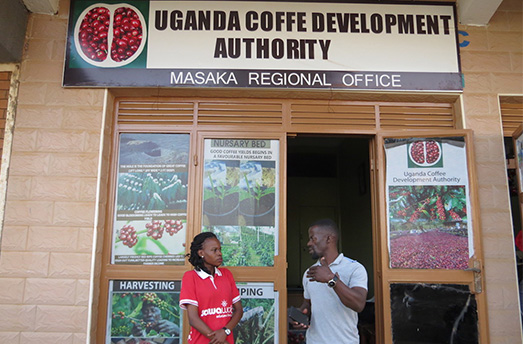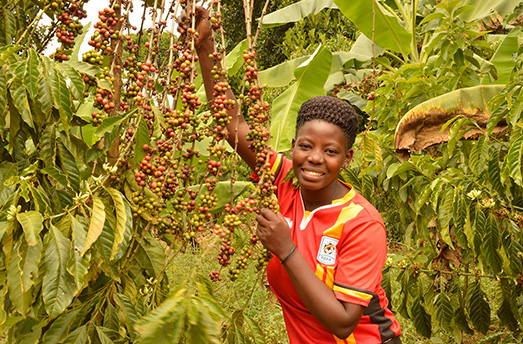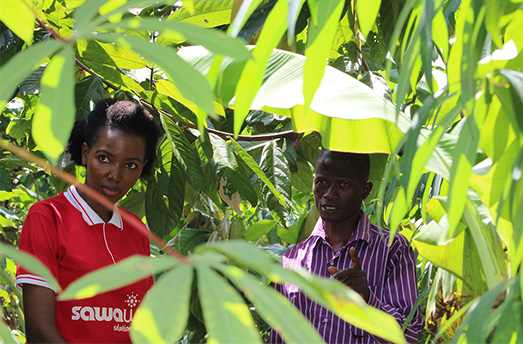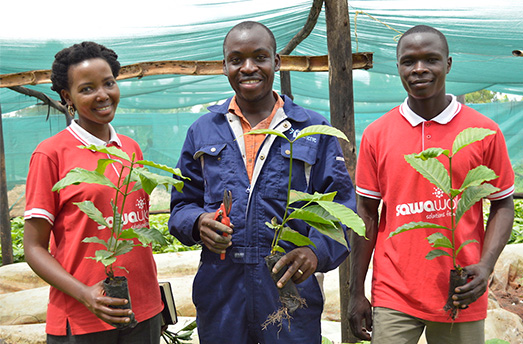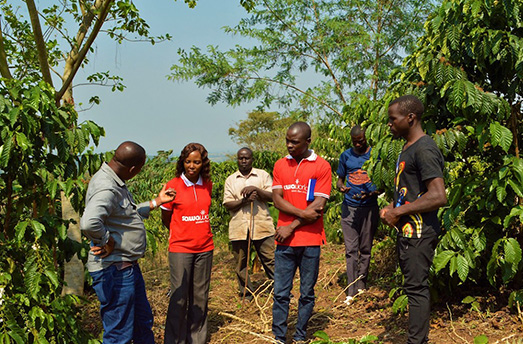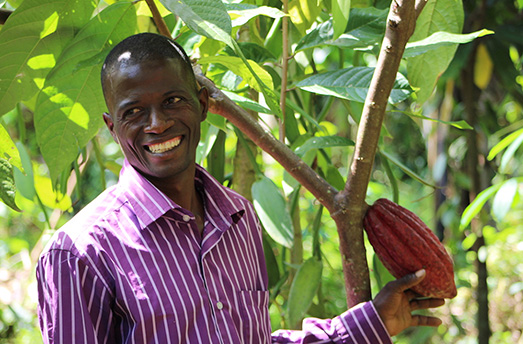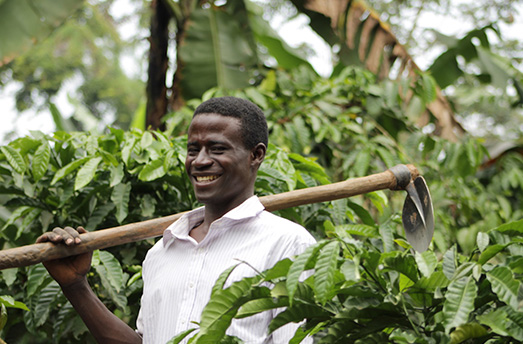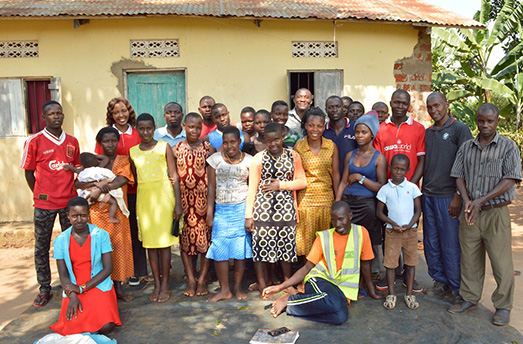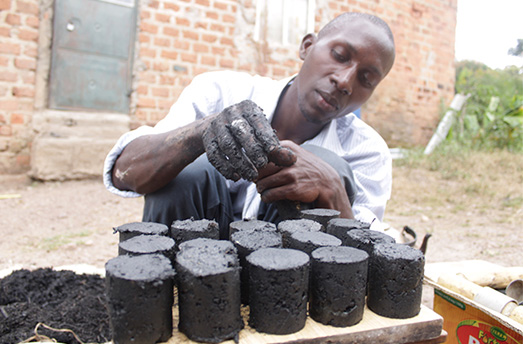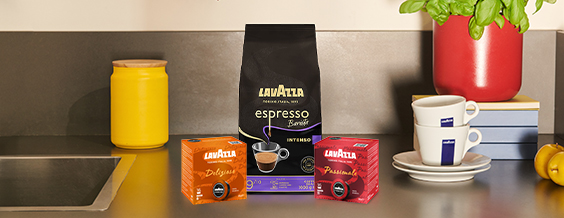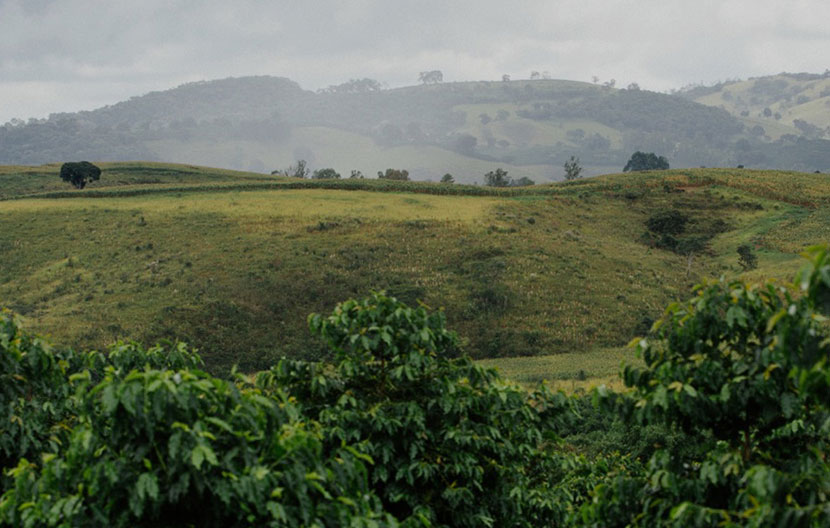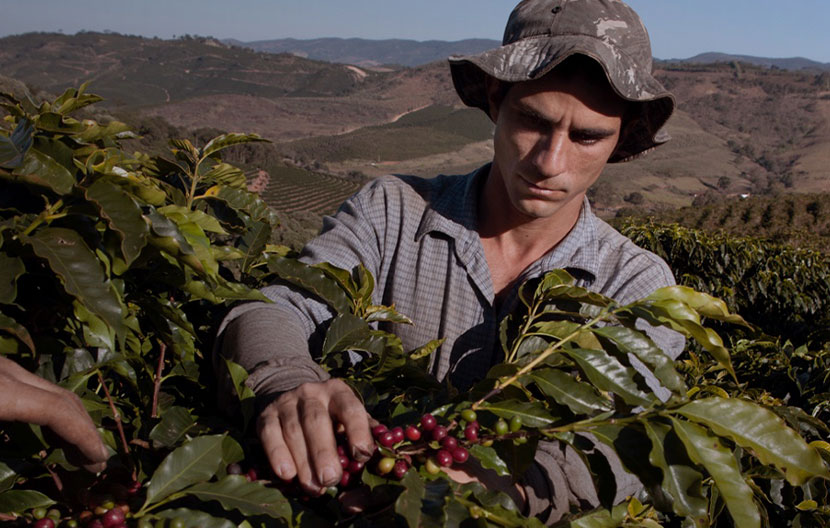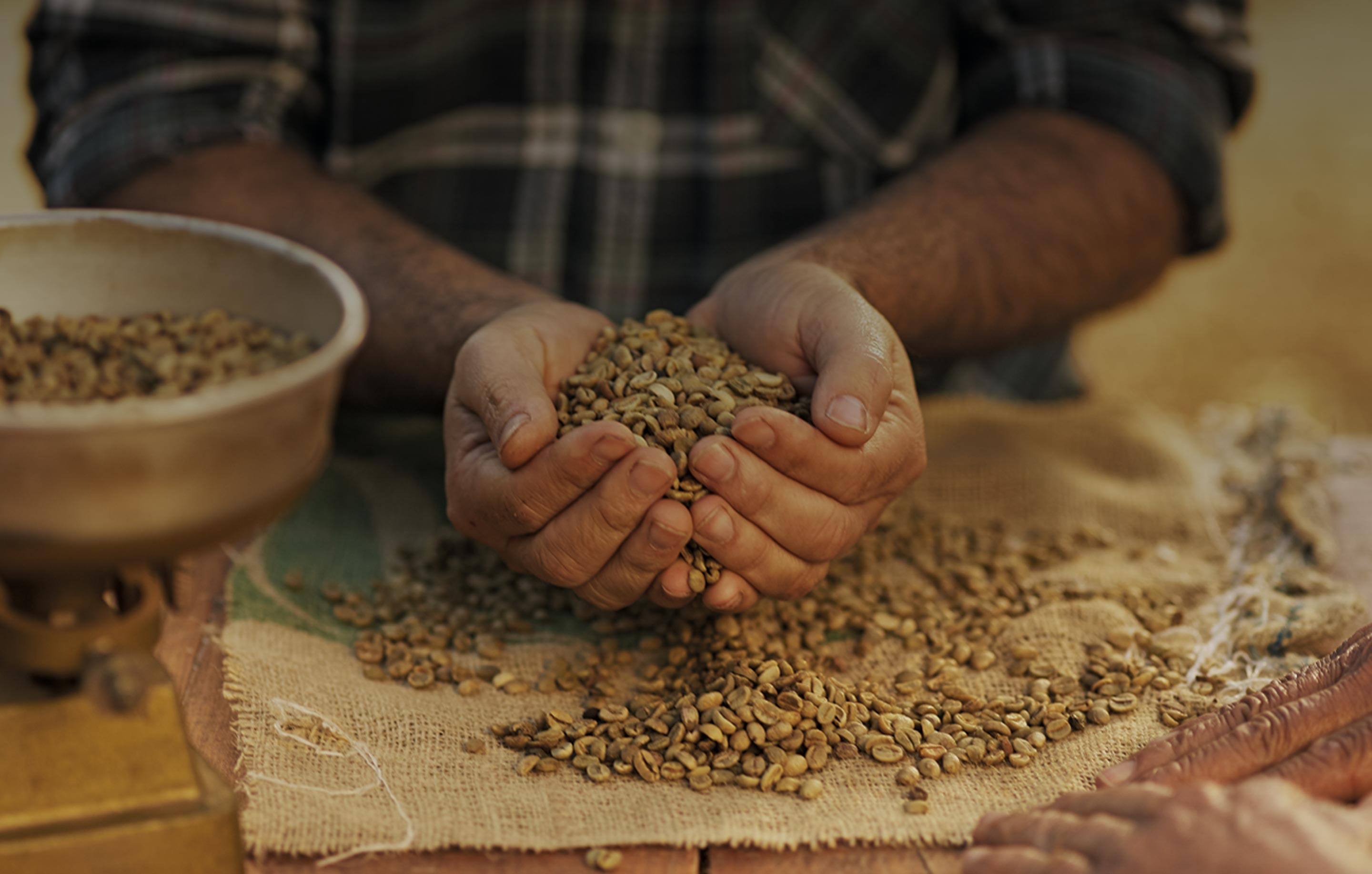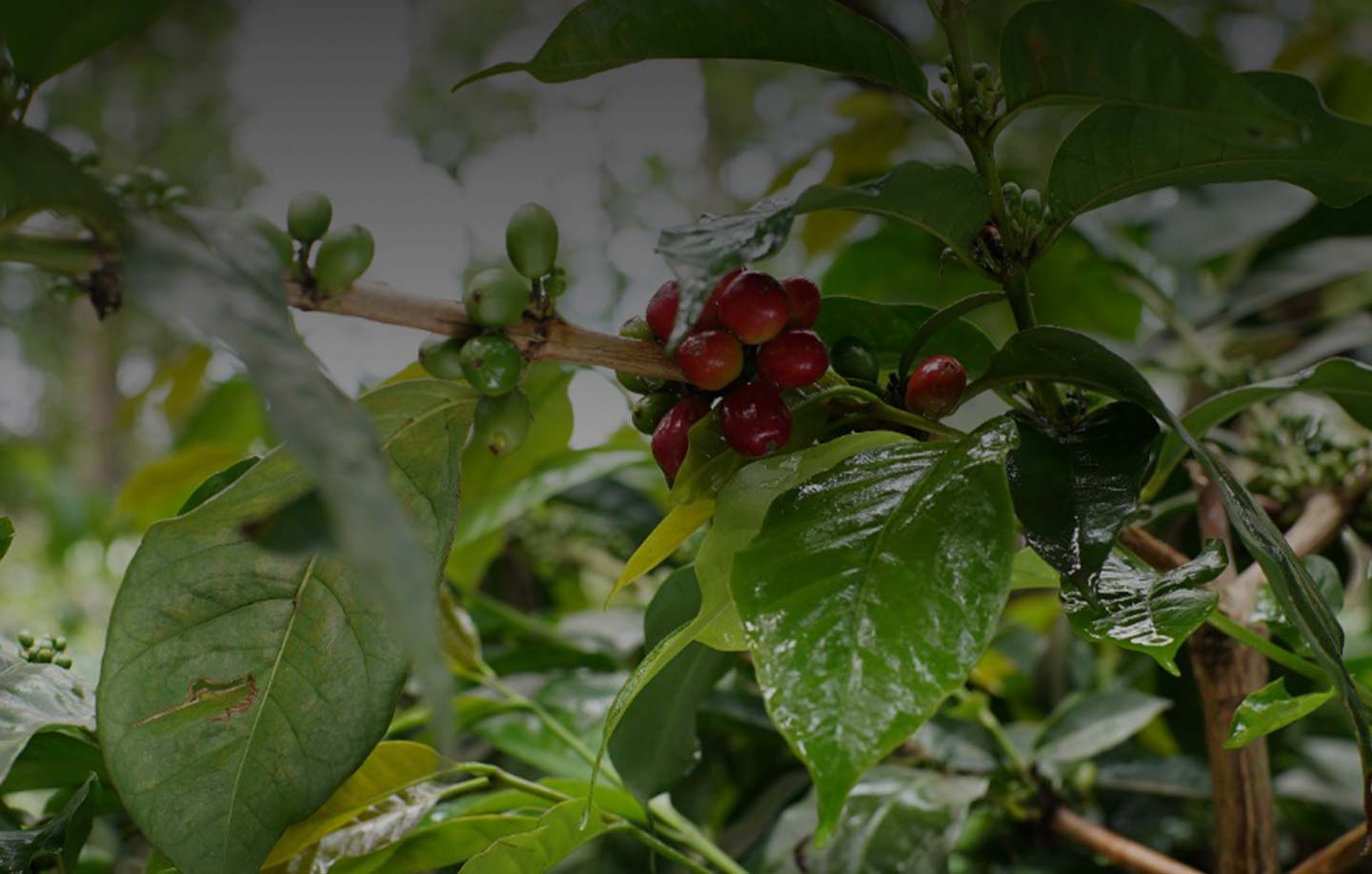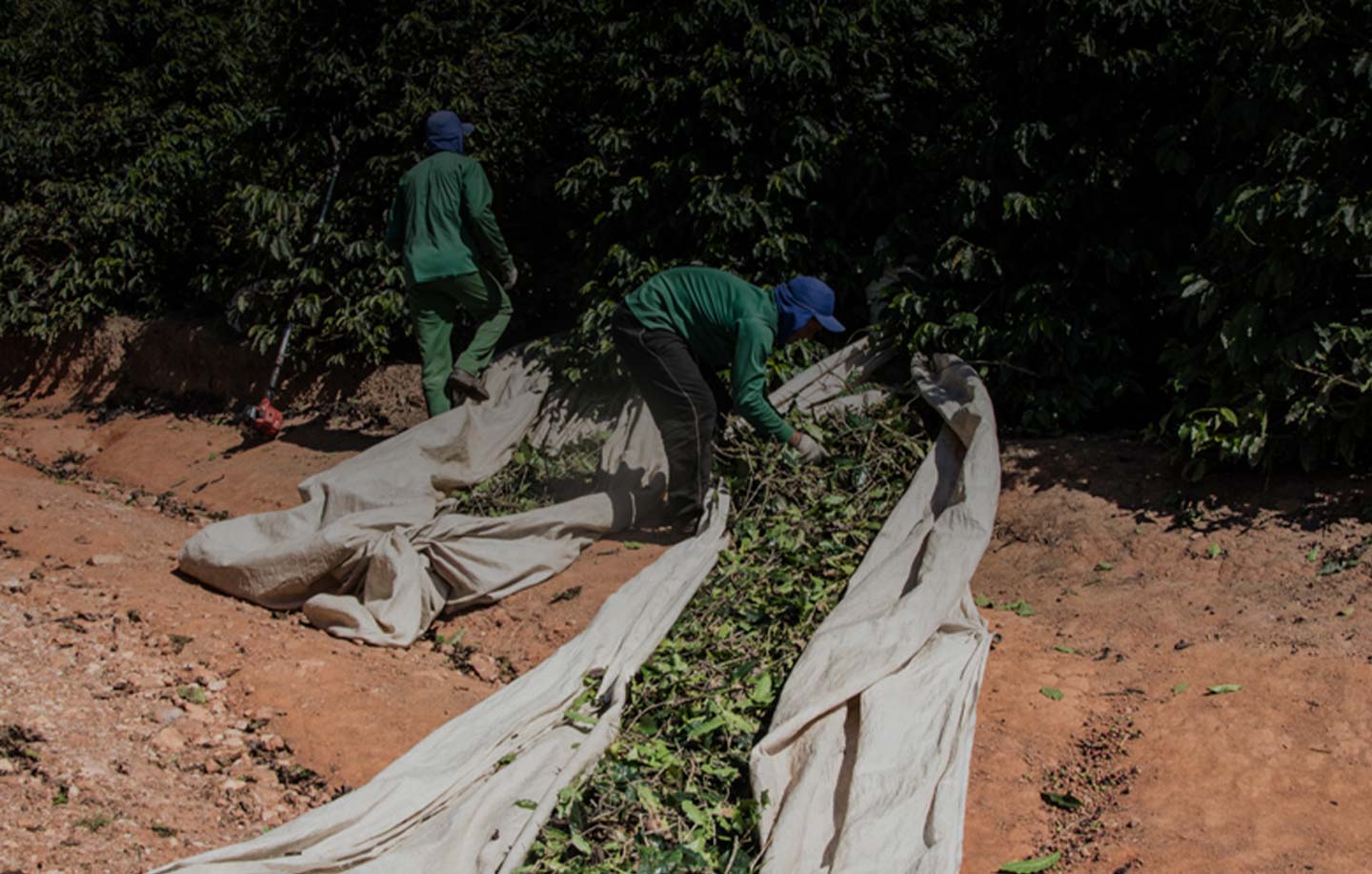*Lavazza is not affiliated with, endorsed or sponsored by Nespresso
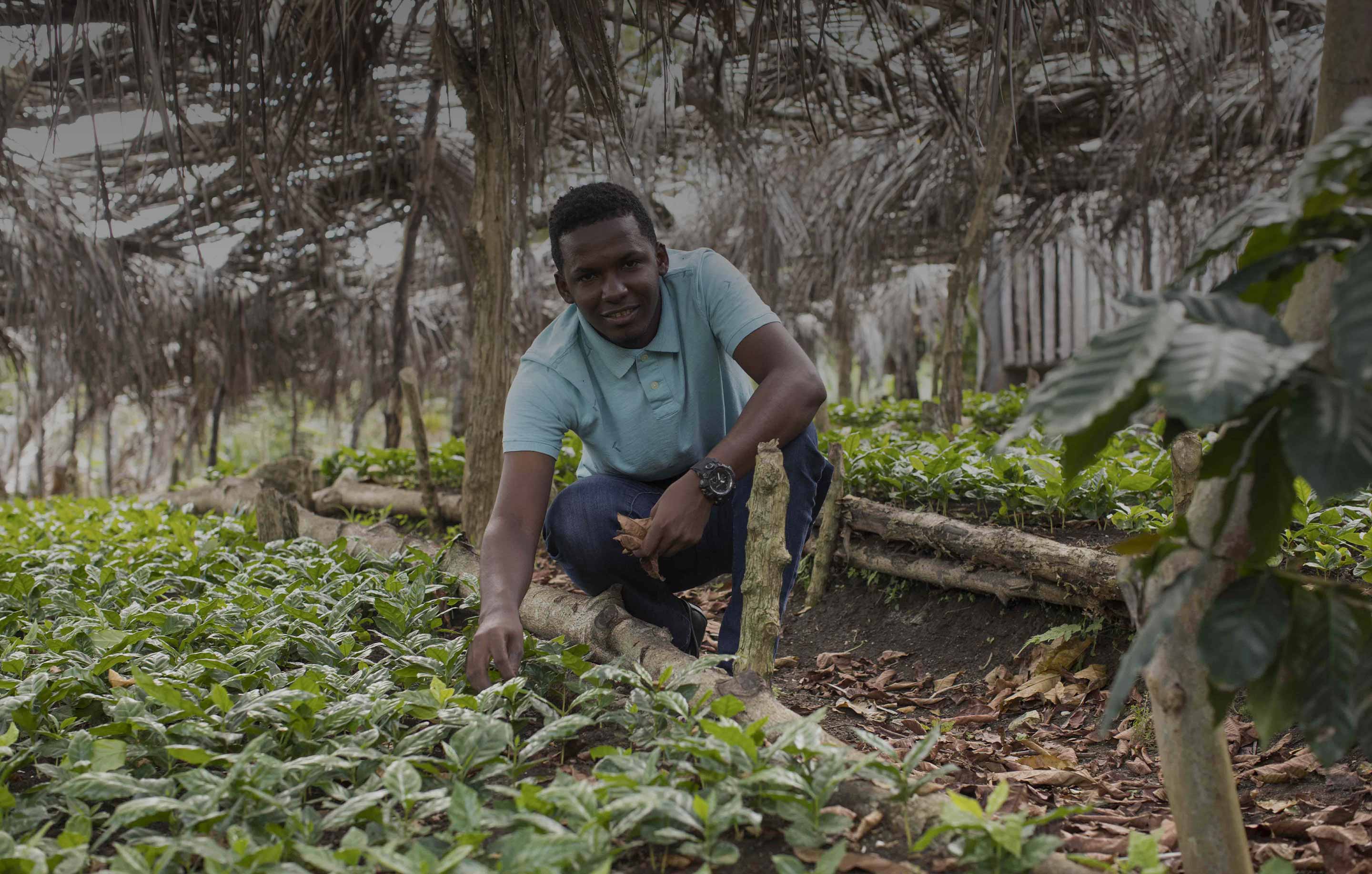
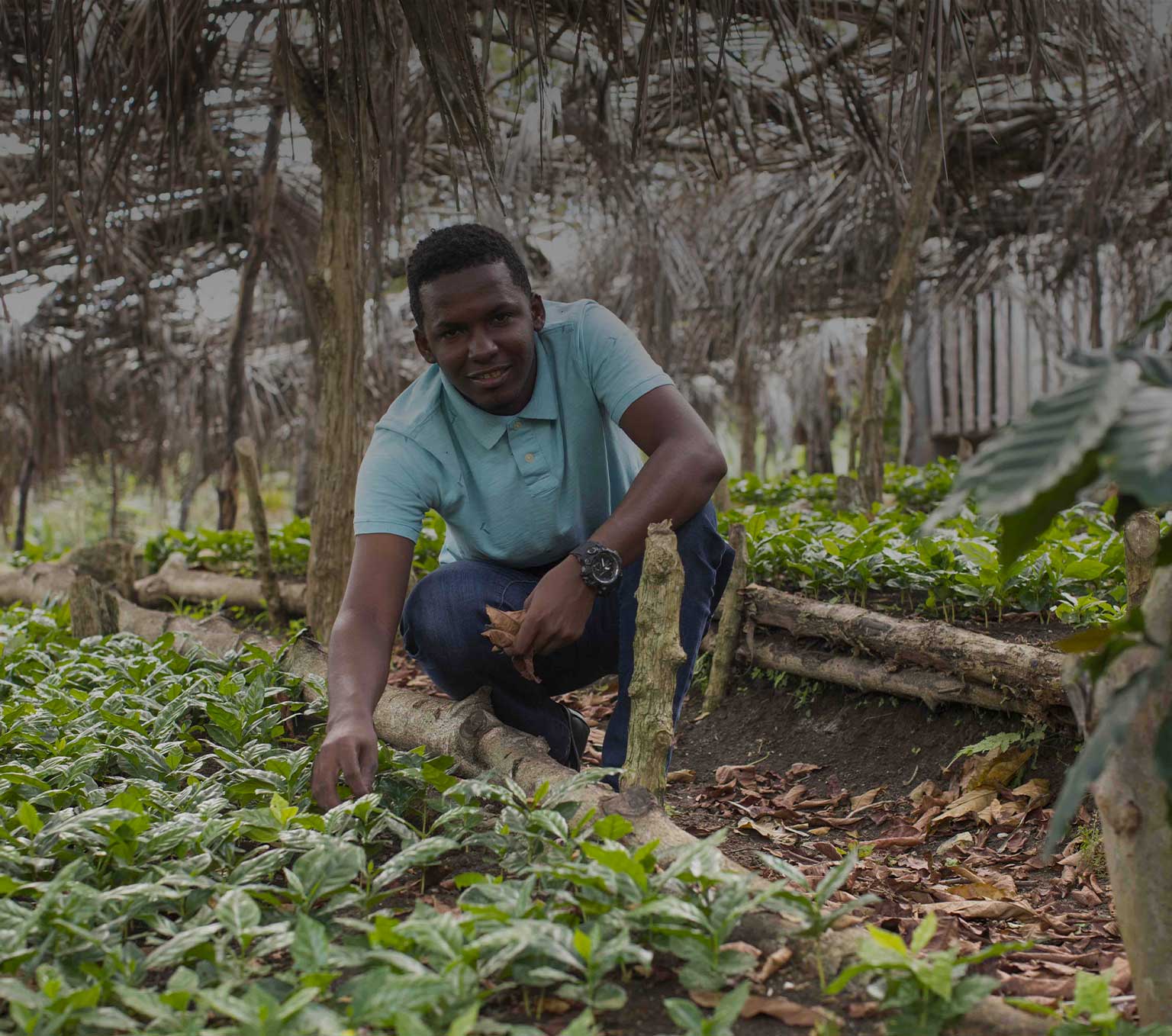
UGANDA: OUR YOUNG PEOPLE ARE OUR FUTURE
A project meant to inspire Uganda’s younger generation of local coffee producers.
In Uganda, 85% of the coffee is grown by local farmers. Unfortunately, due to the negative effects of climate change, many of these local farming families are being forced to leave the countryside and their agricultural activities in search of better opportunities in the bigger cities.
THE UJANA PROJECT
For several years now, the Lavazza Foundation, together with International Coffee Partners, has backed several projects in Uganda in support of local farmers and coffee producers.
Additionally, with the NGO Sawa World, Lavazza Foundation set up the Ujana Coffee Project. This project gives the younger generation in Uganda access to resources at a local level and provides them with an opportunity for change.
This project offers a solution to diversify and increase the income of the youth from smallholder coffee farms. The scope of the “Ujana” project is to engage them and offer them broad-based access to simple, local innovations. The idea for this project came from Daphne Nederhorst, founder of Sawa World and one of the protagonists of the 2018 Lavazza Calendar "2030: What are you doing".
During the first phase of the project, 700 young people between the ages of 15 and 35 from 5 different departments were chosen to start a small business. The project required all 700 people to propose their own business idea, which has now been launched thanks to initial economic aimed to provide specific local training. All 700 people will provide documentation on the proposed idea, including a short informative video and a didactic manual with simple illustrations that explained it step-by-step. The videos and manuals they provided served as self-study tools for other young participants part of the “local solution hubs” in the beneficiary communities. In addition to hands-on training sessions, they received in marketing and business management. Dialogue forums were also held where new ideas, successes and challenges among the participants could be exchanged. It was expected that the "hubs" would be able to accommodate between 10,000 and 30,000 young people.
To share the real impact of the project and its potential, a day of workshops will be held where young beneficiaries will share their experiences in hopes of inspiring other young people victims of extreme poverty to make a change.
